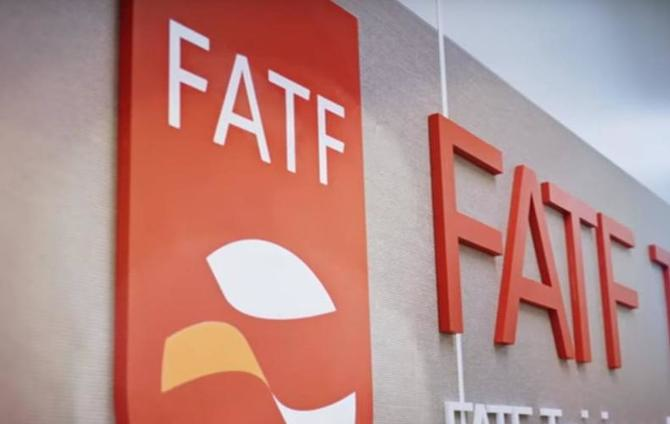FATF Recommendations
The Financial Action Task Force (FATF) is an intergovernmental organization established to combat money laundering, terrorist financing, and other threats to the integrity of the global financial system.
 Written by Erling Andersen
Written by Erling Andersen
Definition: The Financial Action Task Force (FATF) is an intergovernmental organization that sets international standards and promotes the implementation of measures to combat money laundering, terrorist financing, and other threats to the integrity of the global financial system. The FATF Recommendations are a comprehensive set of guidelines that countries are expected to adopt and implement to address these risks effectively.
Historical View
The FATF was established in 1989 by the Group of Seven (G7) countries in response to growing concerns about money laundering and its impact on the global economy. Initially focused on combating money laundering, the FATF expanded its scope in 2001 to include measures against terrorist financing in the wake of the 9/11 attacks.
Over the years, the FATF has developed a series of recommendations that provide a framework for countries to establish legal, regulatory, and operational measures to combat money laundering and terrorist financing. These recommendations have undergone several revisions to adapt to evolving risks and to address emerging challenges in the global financial system.
Practical Examples
The FATF Recommendations cover a wide range of areas, including the criminalization of money laundering and terrorist financing, customer due diligence, record-keeping and reporting obligations, international cooperation, and the supervision and regulation of financial institutions.
Here are ten practical examples of the FATF Recommendations in action:
- Ensuring that financial institutions identify and verify the identity of their customers.
- Implementing risk-based approaches to assess and mitigate money laundering and terrorist financing risks.
- Establishing effective systems for reporting suspicious transactions to financial intelligence units.
- Enhancing the transparency of beneficial ownership of legal entities to prevent the misuse of corporate structures for illicit purposes.
- Strengthening international cooperation through the exchange of information and mutual legal assistance.
- Implementing targeted financial sanctions to disrupt the financing of terrorism and proliferation of weapons of mass destruction.
- Strengthening the regulation and supervision of money service businesses, virtual asset service providers, and other non-financial sectors vulnerable to money laundering and terrorist financing.
- Establishing specialized financial intelligence units to collect, analyze, and disseminate financial intelligence to support law enforcement efforts.
- Enhancing the capacity of law enforcement agencies to investigate and prosecute money laundering and terrorist financing offenses.
- Conducting national risk assessments to identify and understand the money laundering and terrorist financing risks faced by a country.
Statistics
Statistics play a crucial role in understanding the effectiveness and impact of the FATF Recommendations. Here are ten relevant statistics:
- As of September 2021, the FATF has 39 member countries and jurisdictions.
- Over 200 countries and jurisdictions have committed to implementing the FATF Recommendations.
- The FATF conducts mutual evaluations of its member countries to assess their compliance with the recommendations.
- As of 2021, the FATF has conducted over 120 mutual evaluations worldwide.
- Over 50 countries have been identified as having significant deficiencies in their AML/CFT systems by the FATF.
- Over 90% of countries have criminalized money laundering as required by the FATF Recommendations.
- Over 170 countries have established financial intelligence units (FIUs) to collect and analyze suspicious transaction reports.
- The FATF maintains a public list of high-risk and non-cooperative jurisdictions to raise awareness and promote compliance.
- The FATF regularly publishes reports on emerging money laundering and terrorist financing threats.
- The FATF’s recommendations have influenced the development of AML/CFT frameworks globally.
Incidents
While the FATF Recommendations have been instrumental in strengthening global AML/CFT efforts, incidents highlighting the ongoing challenges persist. Here are ten incidents that underscore the importance of effective implementation:
- The Panama Papers leak exposed the widespread use of offshore entities and complex structures for money laundering and tax evasion.
- The 1MDB scandal in Malaysia involved the misappropriation of billions of dollars from a state investment fund.
- The Danske Bank case revealed a vast money laundering scheme involving billions of euros flowing through its Estonian branch.
- The FinCEN Files leak exposed major shortcomings in global AML/CFT efforts and the prevalence of suspicious transactions.
- The Hawala banking system has been exploited for illicit purposes, enabling the underground movement of funds across borders.
- Terrorist financing networks have used informal value transfer systems (IVTS) to move funds covertly.
- The use of virtual currencies, such as Bitcoin, has presented new challenges in detecting and preventing money laundering and terrorist financing.
- The North Korean regime has engaged in extensive illicit activities, including money laundering and sanctions evasion.
- The involvement of major banks in facilitating money laundering, as evidenced by cases such as HSBC and Wachovia.
- The rise of cybercrime and its implications for money laundering and illicit financial flows.
The Future
The future of AML/CFT efforts guided by the FATF Recommendations holds several key aspects:
- Technological advancements, such as artificial intelligence and machine learning, will enhance the detection and prevention of money laundering and terrorist financing.
- Increased international cooperation will be vital in tackling cross-border financial crimes.
- Regulatory frameworks will continue to evolve to address emerging risks and vulnerabilities.
- Non-financial sectors, including virtual assets and emerging payment systems, will face greater scrutiny to prevent their misuse for illicit purposes.
- Risk assessments will become more sophisticated and targeted, enabling better allocation of resources.
- Capacity-building efforts will be essential to empower countries in implementing the FATF Recommendations effectively.
- Enhanced public-private partnerships will strengthen the collective response to AML/CFT challenges.
- Data analytics and information sharing will play a crucial role in identifying and disrupting illicit financial flows.
- Continuous monitoring and evaluation will ensure the effectiveness of AML/CFT measures.
- The role of advanced AML software, such as Kyros AML Data Suite, will be pivotal in assisting organizations in meeting regulatory requirements and mitigating risks.
In addition to the previously discussed aspects of the FATF Recommendations, let’s delve deeper into their significance and impact:
International Cooperation
The FATF Recommendations emphasize the importance of international cooperation in combating money laundering and terrorist financing. By promoting collaboration among countries, the FATF fosters information sharing, joint investigations, and mutual legal assistance. This cooperation is crucial, as financial crimes often transcend national borders. Through coordinated efforts, countries can better identify and disrupt illicit financial flows, dismantle criminal networks, and hold perpetrators accountable.
Role of Financial Institutions
Financial institutions play a vital role in implementing the FATF Recommendations. They are required to establish robust internal controls, perform customer due diligence, and report suspicious transactions. By adhering to these guidelines, financial institutions contribute to the early detection and prevention of money laundering and terrorist financing. Moreover, they are expected to establish effective risk management frameworks, conduct regular risk assessments, and provide ongoing training to employees to ensure compliance with AML/CFT measures.
Enhanced Due Diligence
The FATF Recommendations emphasize the need for enhanced due diligence measures when dealing with high-risk customers, countries, or transactions. Financial institutions are required to conduct a thorough assessment of the risks associated with such relationships and take appropriate measures to mitigate those risks. This includes conducting additional background checks, obtaining additional documentation, and implementing enhanced monitoring mechanisms. Enhanced due diligence helps identify and mitigate the potential misuse of financial systems for illicit activities.
Technology and Innovation
The advent of technology and innovation has brought both challenges and opportunities in the realm of AML/CFT. The FATF Recommendations recognize the need for continuous adaptation to technological advancements. Financial institutions are encouraged to leverage technological solutions, such as data analytics, artificial intelligence, and machine learning, to enhance their AML/CFT capabilities. These technologies enable more efficient and effective detection of suspicious activities, rapid identification of patterns, and proactive risk management.
Risk-Based Approach
The FATF Recommendations promote a risk-based approach to AML/CFT. This approach acknowledges that resources should be allocated based on the assessed level of risk. By conducting robust risk assessments, financial institutions can identify and prioritize the areas where the risk of money laundering and terrorist financing is higher. This enables targeted allocation of resources, focusing on the areas that pose the greatest threats. A risk-based approach ensures a more efficient use of resources while maintaining the effectiveness of AML/CFT measures.
Emerging Threats
The FATF continuously monitors emerging threats and vulnerabilities related to money laundering and terrorist financing. It regularly publishes reports and guidance to address evolving risks. With the rapid development of new technologies, such as virtual assets and cryptocurrencies, the FATF has expanded its focus to include these areas. Financial institutions are encouraged to stay updated with the latest FATF guidance to effectively address emerging threats and adapt their AML/CFT measures accordingly.
Impact on Non-Financial Sectors
While financial institutions have traditionally been the primary focus of AML/CFT efforts, the FATF Recommendations acknowledge the need to extend scrutiny to non-financial sectors as well. Sectors such as real estate, precious metals and stones, legal and accounting services, and virtual assets have been identified as potential avenues for money laundering and terrorist financing. The FATF encourages these sectors to implement robust preventive measures and comply with AML/CFT obligations to deter illicit activities.
Global Compliance
The FATF Recommendations have had a significant impact on global compliance with AML/CFT standards. They provide a common framework that countries can adopt and tailor to their specific circumstances. Through mutual evaluations, peer reviews, and the publication of compliance ratings, the FATF assesses countries’ adherence to the Recommendations. This promotes transparency, accountability, and encourages countries to strengthen their AML/CFT regimes. Non-compliant jurisdictions may face reputational risks and potential sanctions, further incentivizing adherence to the international standards set by the FATF.
Explore the Power of Kyros AML Data Suite
Kyros AML Data Suite, a leading AML compliance software, offers advanced solutions to support organizations in their adherence to the FATF Recommendations. With its comprehensive analytics, risk assessment tools, transaction monitoring capabilities, and real-time alerts, Kyros AML Data Suite enables businesses to stay ahead of evolving AML/CFT challenges. Discover the benefits of Kyros AML Data Suite by visiting kyrosaml.com and book a call with our experts to learn more.
Conclusion
In conclusion, the FATF Recommendations serve as a comprehensive and evolving framework for combating money laundering, terrorist financing, and other illicit financial activities. They address various aspects, including international cooperation, the role of financial institutions, enhanced due diligence, technology and innovation, risk-based approach, emerging threats, non-financial sectors, and global compliance. By adhering to these Recommendations, countries and financial institutions contribute to a more secure and transparent global financial system, protecting it from abuse and ensuring the integrity of financial transactions.
Discover how Kyros AML Data Suite can assist you in complying with the FATF Recommendations and strengthen your AML/CFT efforts. Visit kyrosaml.com to learn more about our comprehensive AML compliance solutions.
Related Articles:
Share article on



